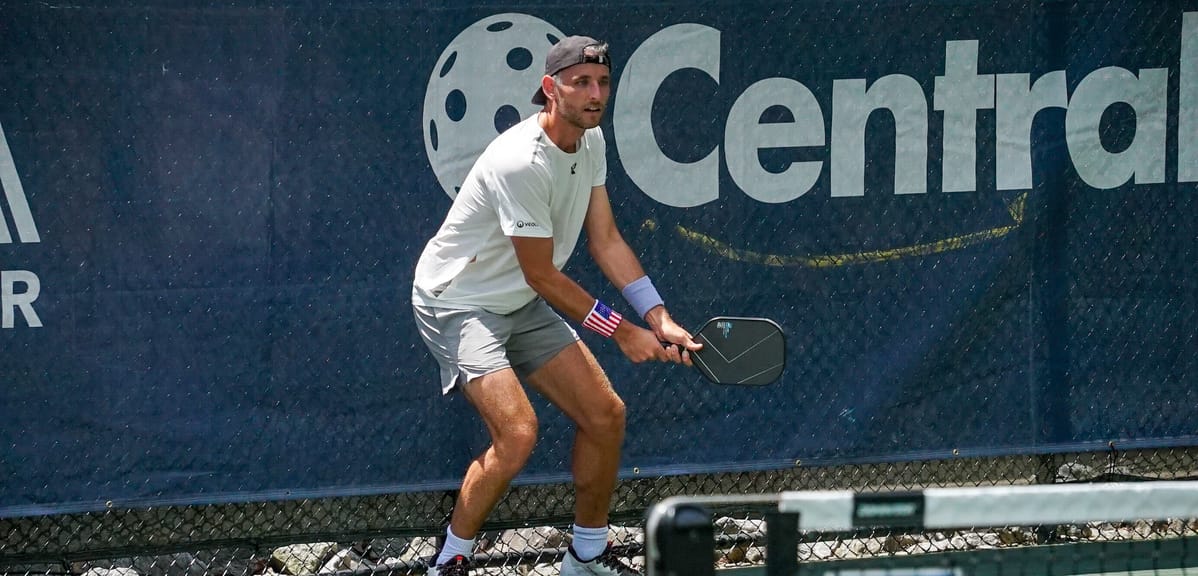
Pickleball singles is not for the faint of heart. If played correctly, it can be extremely physically grueling. While less strategic in nature than doubles, singles pickleball strategy has evolved over time to play an important role in the outcome of a match.
Here are three keys to think about when adjusting your game from doubles to singles.
Love pickleball? Then you'll love our free newsletter. We send the latest news, tips, and highlights for free each week.
1. The serve is everything – go deep with the serve or go home
In doubles, there is way less motivation to go for a bigger serve. Sure, bombing your serve when you’re up 10-0 or down 0-10 is less risky. Overall, most serves in pickleball doubles are point starters. In singles, having a big serve is everything. Starting the point by pinning your opponent back is a must.
I try to actively tell myself to try to miss two or three serves deep in every game to 11.
Do I want to miss them? Of course not. But that is the mindset you must have when serving in singles.
Your opponent has the advantage of getting to return and come to the kitchen. Keeping them back even a half second longer with a deep serve could mean the difference between a side out and a point.
Remember that with serving, depth is key.
A lot of amateurs and even some pro players equate good serving with power. I can hit a flat serve 60 mph that lands just past the kitchen line. However, that serve is less effective than a 10-mph lob serve that lands on the baseline. The goal is to delay or even prevent your opponent from returning and coming in, and the key to executing that is depth.
2. Coming to the net vs. staying back
Five years ago, this was not even a debate. In singles, you hit the return and you go to the net. The only time you would stay back is if you hit an awful return that was super short in the court. With the increase in paddle technology and better athletes entering the game (especially at the pro level), this debate warrants a bit more discussion.
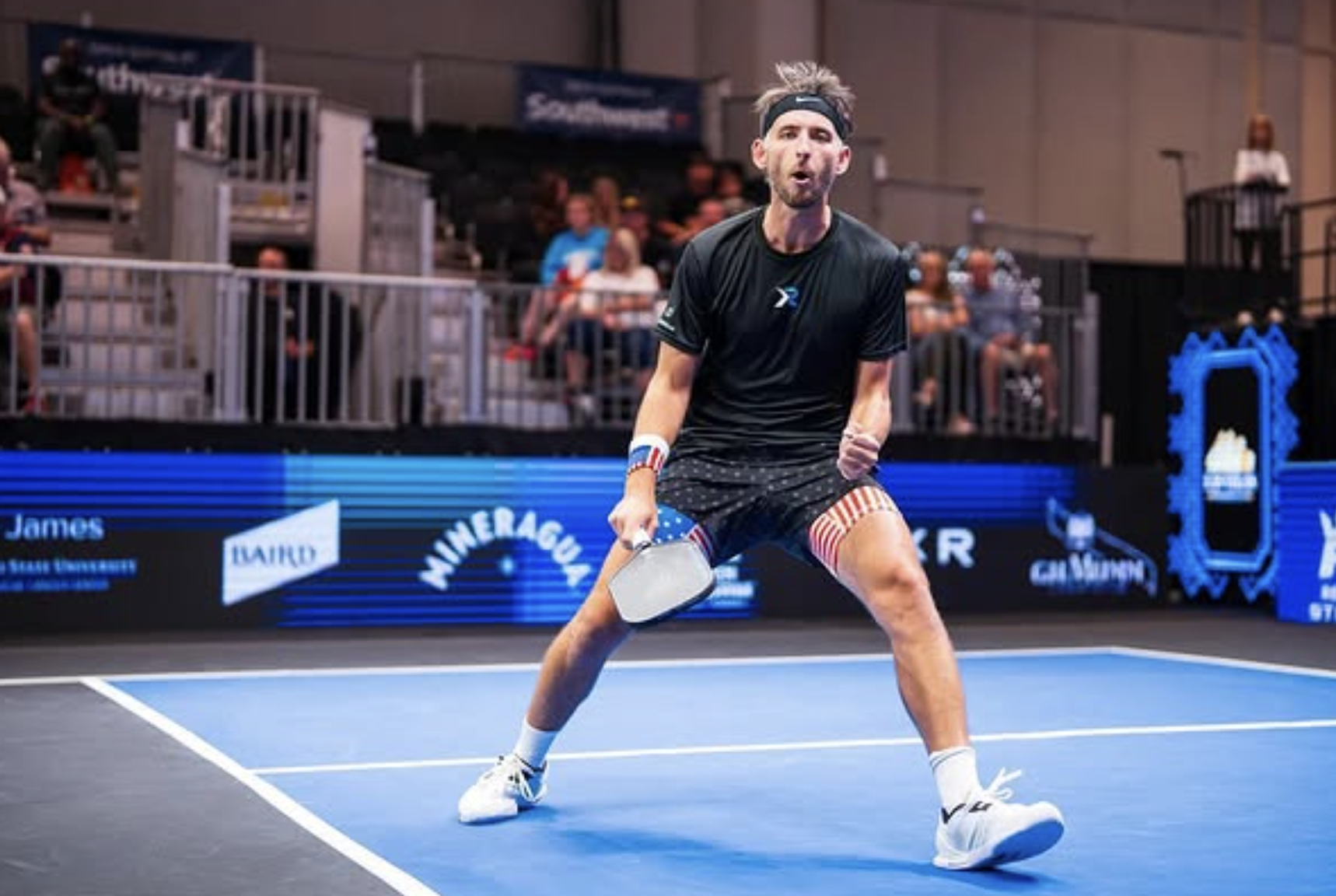
Coming to the net
I am still of the old school philosophy – return and go in. I rarely ever stay back off the return in pickleball. However, I trust my ability to hit difficult volleys at the kitchen line and have absurdly long arms. So, let’s dive into the pros and cons of both.
If you do hit a good enough return to follow it in, it immediately puts pressure on your opponent to hit an above average third shot. Any average or below third shot from your opponent should result in you hitting a volley that makes it extremely difficult for your opponent to hit a good fifth shot.
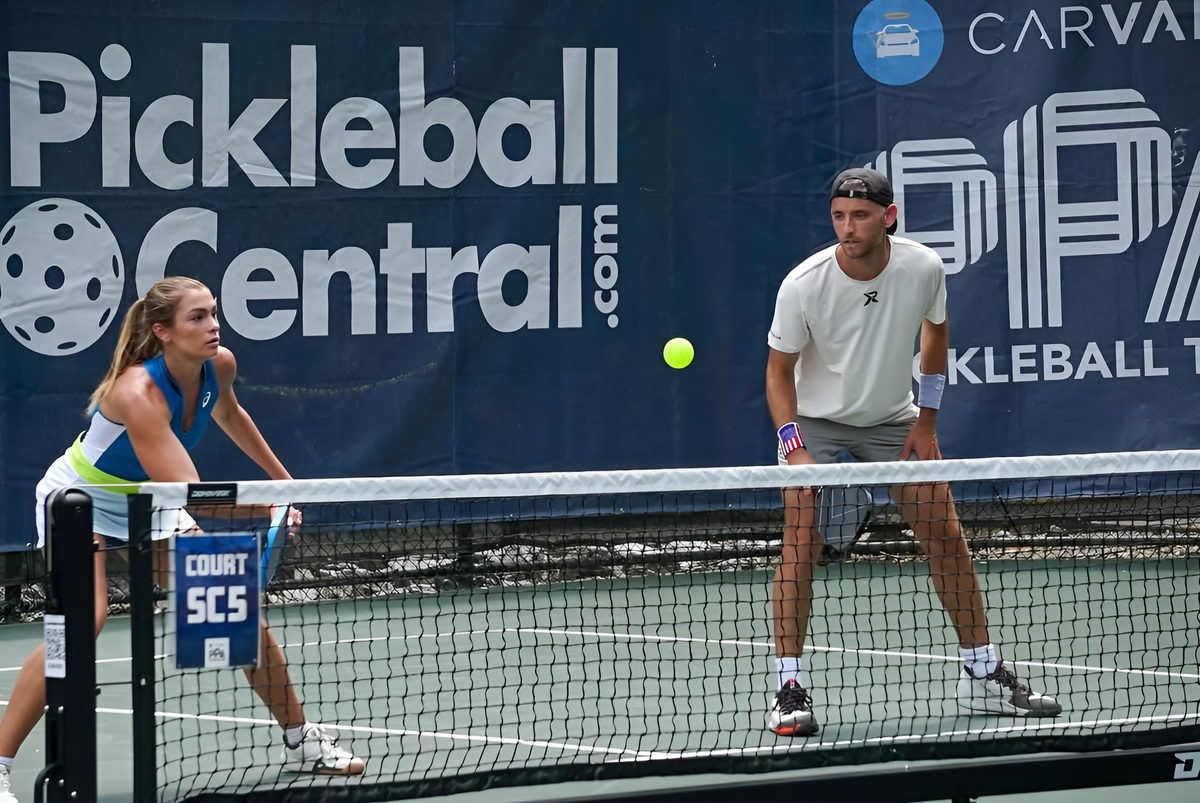
In other words, you should be in the driver seat for the rest of the point. This advantage is crucial, not to mention returning and going to the net is physically less demanding than staying back and trying to run down multiple balls at the baseline.
The con of going to the net is if your return is not above average, you can easily be passed and can give your opponent confidence and momentum moving forward.
If you choose to stay back, you should do so knowing that you will have to move more.
Staying at the baseline
A lot of tennis player converts who did not like to volley in tennis will stay on the baseline in pickleball singles.
The pro of staying back is it can force your opponent to feel like they must come forward.
If they aren’t as comfortable doing so, you can play to their weakness and make them hit a tough volley or pass them altogether.
In the women’s professional singles game, you will see most women stay back more often, usually for the reason mentioned above. On the contrary, the men almost always return and come in. Staying back vs. coming in comes down to comfortability, fitness and stamina, and situation.
3. The first three shots are everything in singles
I have already harped on how important it is to hit huge serves in pickleball. Expanding on that, the first three shots (and really the fourth too) are everything in singles. Equally as important as the serve is the return. Hit a good one, and you are in the driver seat of the point and put a ton of pressure on your opponent to come up with a spectacular or defensive third. Hit a bad one, and you are likely to get passed or invite your opponent to come forward and into the driver seat.
Most professional singles players will spend a ton of time on serves and returns in practice. I have been served off the court in matches, and I have also returned so well that my opponents struggled to make a decent third.
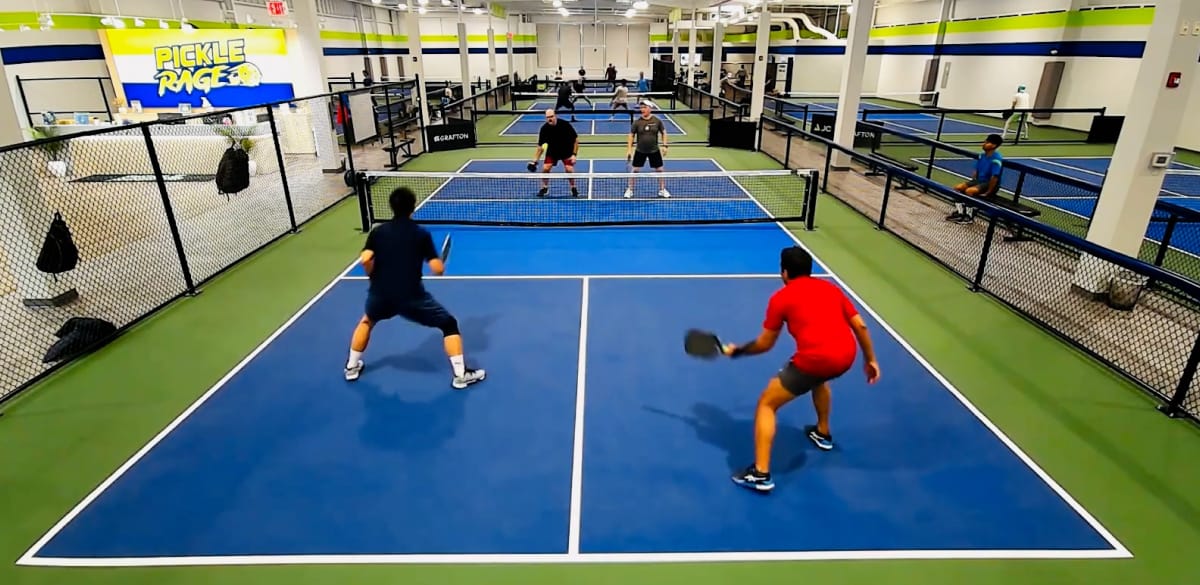
Speaking of the third, this is where you will see an even level singles match go one way or another. The first and seemingly obvious key to hitting a third in singles is to make it. You must be thinking – “yeah duh I know that.” But you’d be surprised at how many players (especially amateurs) hit their third shot in the net, wide, or deep by two feet every often in singles.
For some reason, we equate having one person opposite from us instead of two as a green light to go for a low margin shot, which leads to errors.
In singles, you will win more points by just making the third shot and forcing your opponent (who is likely moving forward off the return) to hit a volley. As you gain confidence throughout the match, you can slowly start going for better thirds.
Thanks for reading and be on the look out for the next article. Enjoy the grind, and remember, you can’t dink all day if you don’t start in the morning.
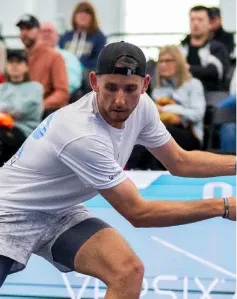
Eric Roddy
Eric is a PPA tour pro living in Charlotte, NC, sponsored by PROXR. In addition to playing PPA events, he teaches pickleball 2-3 hours a week, enjoys golf, and listening to his favorite band Goose.
Love Pickleball? Join 100k+ readers for free weekly tips, news & gear deals.
Subscribe to The DinkGet 15% off pickleball gear at Midwest Racquet Sports







